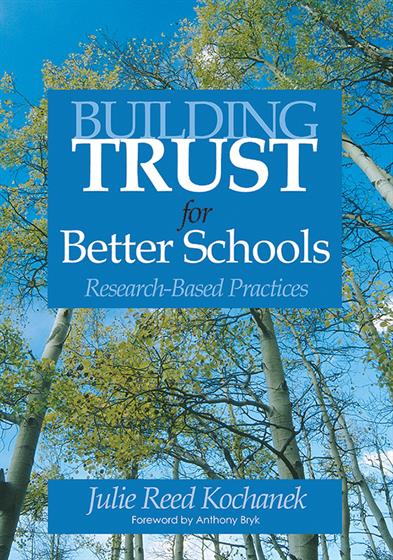Hands-on, Practical Guidance for Educators
From math,
literacy, science, equity, multilingual learners, and SEL, to assessment, school counseling,
and education leadership, our books are research-based and authored by experts
on topics most relevant to what educators are facing today.

Building Trust for Better Schools
Research-Based Practices
By:
Julie Kochanek
Foreword by Anthony Bryk
Why is trust in schools so important? What does trust mean to a school's productivity?
Parents are dependent on teachers to educate their children. Teachers are dependent on principals to create conditions conducive to helping children learn. This excellent new resource identifies links between the growth of trust and positive outcomes that benefit school improvement efforts. But how do we build trust? Kochanek offers an innovative process model of trust building. Increased trust:
Parents are dependent on teachers to educate their children. Teachers are dependent on principals to create conditions conducive to helping children learn. This excellent new resource identifies links between the growth of trust and positive outcomes that benefit school improvement efforts. But how do we build trust? Kochanek offers an innovative process model of trust building. Increased trust:
- Fosters participation among faculty in school reform efforts
- Creates a greater openness to innovation among teachers
- Increases outreach to parents
- Produces even higher academic productivity in schools
Product Details
- Grade Level: PreK-12
- ISBN: 9781412915144
- Published By: Corwin
- Year: 2005
- Page Count: 144
- Publication date: April 13, 2005
Review Copies
This book is not available as a review copy.


